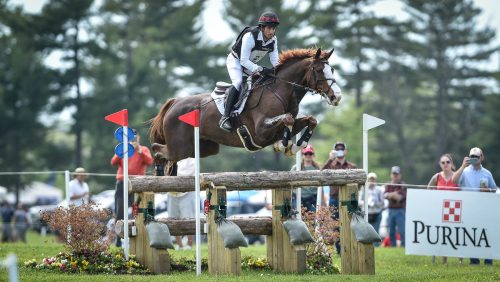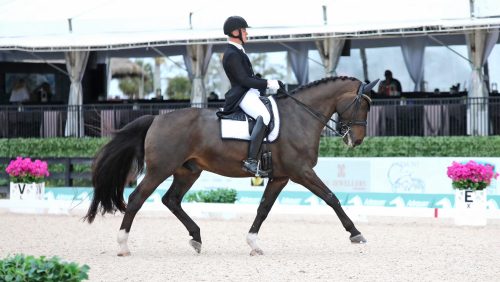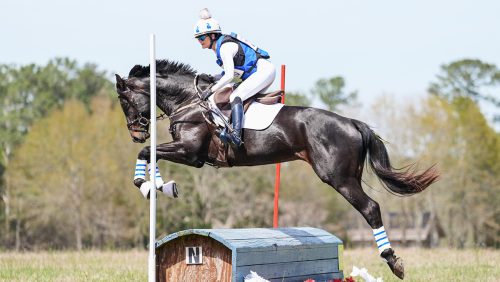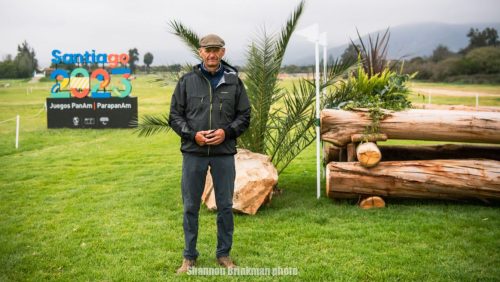In this three-part series, blogger Taylor Flury talks about three things she wants to teach young horses she trains: to think, to love and how to work. The first entry was: Three Lessons For Young Horses Part 1: Teaching Them To Think and the second was Three Lessons For Young Horses Part 2: Teaching Them To Love.
In my opinion, it is imperative to teach a horse how to work.
They must enjoy work and they must understand that it is the time of day they have to focus and perform as asked. This is probably one of the hardest things to teach a horse, but one of the most necessary.
If a horse does not enjoy their work they will be resistant to the work and unwilling to learn. They will become sour and lackluster in their performance. A horse that knows how to work and enjoys their work looks forward to learning new things and enjoys rising up to the challenges presented to them.
How do you teach horses to enjoy work:
- They have to be challenged, but not overfaced.
- Each horse has to be treated as an individual, and you need to find what works for them.
- They cannot get bored. They need to constantly do new exercises or get out of the ring on occasion.
- They have to be rewarded for their efforts.
- They cannot be pushed when they are sore or injured, but sometimes do have to work through stiffness.
To make work enjoyable it cannot become routine; it needs to constantly be switched up and horses need different scenarios so they do not get bored.
Horses need challenge, but downtime or easy work is just as important so that they do not get overstressed or burned out. My horses go for trail rides at least one or twice a week and I consider this just as much a part of their exercise program as a hard flat day or a day working through gymnastics because it is so important for them mentally.
I want my horses to be horses, not just machines. My flatwork days are never routine; some days I work counter-cantering and some days I work on lateral work. Some days I have to encourage my horses that they need to work, but when they are exhausted I listen to them and give them easy days.
ADVERTISEMENT
I have a specific goal with each horse every day on what I want to work on or improve and I try to meet that goal and do it as correctly as possible; don’t just get something halfway decent and move on.

Keeping the work enjoyable means listening to what the horse is telling you.
With that being said though I don’t think you should over-drill. Like everything in life there is a fine line and working with young horses I find this doubly important. I have had this lesson hammered into me over and over. I am a perfectionist so I want to do the exercise until it is 100 percent perfect and then I want to do it two more times to make sure that we are actually doing it correctly and not just getting lucky.
I have learned with my young ones though that sometimes you have to stop once they have done it once correctly. Sometimes if you cannot complete the exercise correctly it is best to break it down into smaller parts or take a break and come back to it later that day or even the next day because the horse needs time to think about what you are asking.
I remember I was riding one of my 4-year-olds once and all I wanted was to canter down a line of cavalettis on the right lead, but every time the horse would land left even though they were staying straight in their body. I then decided to approach it with a different tactic and started doing a circle over the first cavaletti so that the horse would land right and then after a few minutes I went back to the line and we cantered down it on the right lead and I immediately quit.
I knew that it would be more benefit to that young horse to stop then so they could think about what we did and worked on, rather than doing it again and possibly landing on the wrong lead and having to start all over again. If you accomplish half of the task in one day and you can tell your horse is getting physically or mentally tired, stop for the day and pick it up the next day.

Horses who understand how to work are confident and happy to do their job.
I think horses need to be challenged, but never overfaced, in order to stay enthusiastic about their work.
ADVERTISEMENT
When you overface a horse you run the risk or ruining their confidence or even injury. If you ruin a horse’s confidence or make them doubt themselves it takes a long time to rebuild their confidence.
Top athletes will tell you part of the reason they are so successful is because they are so confident and believe they will win. I think a horse needs this same attitude. You must build from the foundation up, so that the horse has all the tools necessary to overcome the challenges they are presented with.
I also think you have to look at each respective horse and learn what they need. I had one young horse who just thrived on challenge; he would get so bored unless he was presented with a difficult task.
On the flip side though, I had another young horse who constantly doubted herself a bit, and I never challenged her at home; I made sure she learned all the tools necessary to meet the challenges in the ring, but at home I did simple exercises so that she was very confident when heading to shows. I wanted her to arrive at shows feeling like she could conquer the world.
When work becomes monotonous for people or horses it becomes boring and we do not try as hard or enjoy going to work as much. When we, as well as horses, are faced with tests and we ace them it boosts our confidence and also increases our joy in working. Never forget to reward your horse for a job well done either as it makes them feel good about themselves.
Also read Three Lessons For Young Horses Part 1: Teaching Them To Think and Three Lessons For Young Horses Part 3: Teaching Them To Love.
Chronicle blogger Taylor Flury rides out of her family’s AliBoo Farm in Minooka, Ill., and competes primarily in the jumpers, specializing in bringing along young horses. She also runs AliBoo’s breeding program. Flury’s former top mount is the U.S.-bred Role Model (Roc USA—Darling Devil), who claimed U.S. Equestrian Federation Horse of the Year titles in 2011 and 2012 in the 5- and 6-Year-Old Jumper divisions and won at grand prix.















